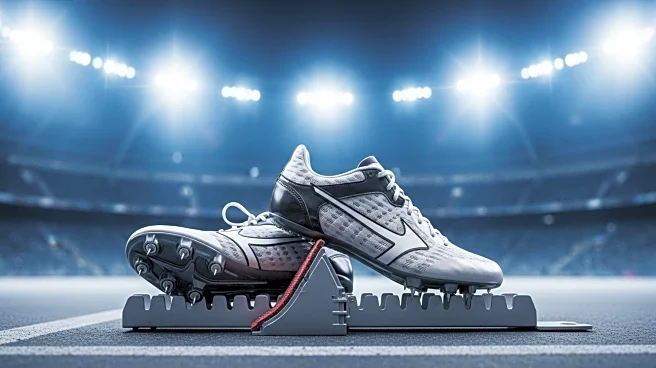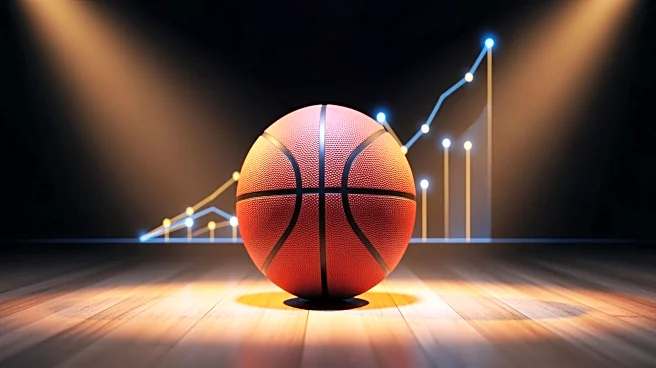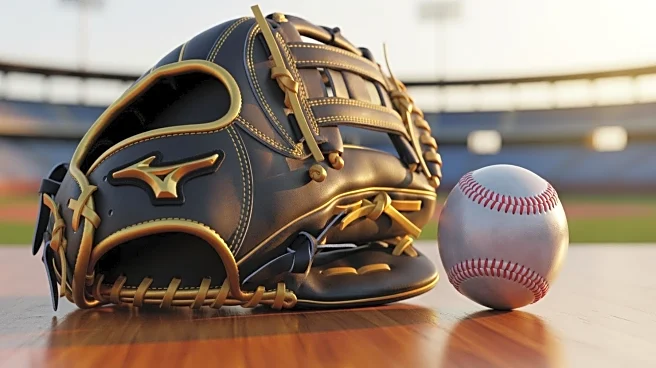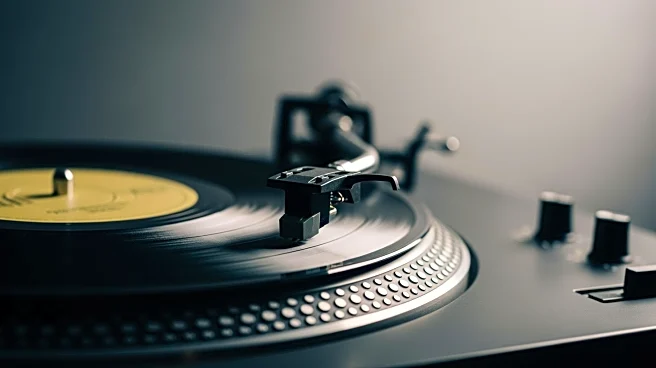What's Happening?
Usain Bolt, the retired Jamaican sprinting legend, has offered advice to Australian schoolboy sprint sensation Gout Gout regarding the challenges of transitioning from junior to senior level in athletics. Gout, who has been compared to Bolt due to his impressive performances, is set to make his world championships debut in the 200m event in Tokyo. Bolt emphasized the importance of having the right coaching and support system, as well as maintaining focus, to succeed at the senior level. He noted that while Gout has shown great talent, the transition to senior competition is demanding and requires more than just raw ability.
Why It's Important?
The advice from Usain Bolt highlights the complexities involved in progressing from junior to senior levels in athletics, a transition that many young athletes face. Bolt's insights are significant as they come from one of the most successful sprinters in history, who understands the pressures and requirements of competing at the highest level. For Gout Gout, this guidance could be crucial in shaping his career trajectory and ensuring he maximizes his potential. The broader impact on the sport includes the encouragement of emerging talents, which can contribute to the growth and popularity of athletics globally.
What's Next?
Gout Gout will compete in the 200m event at the World Championships in Tokyo, marking his debut at this level. The outcome of his performance could influence his future career decisions and opportunities. Stakeholders such as coaches, sports organizations, and sponsors will be watching closely to assess his potential for future competitions, including the 2032 Brisbane Olympics. The advice from Bolt may also prompt Gout to evaluate his current training and support systems to ensure he is well-prepared for the challenges ahead.
Beyond the Headlines
Usain Bolt's comments underscore the importance of mentorship and guidance in sports, particularly for young athletes transitioning to higher levels of competition. This situation highlights the need for comprehensive support systems that address not only physical training but also mental and emotional preparation. The long-term implications could include a shift in how young athletes are nurtured and developed, potentially leading to more structured pathways for talent progression in athletics.









